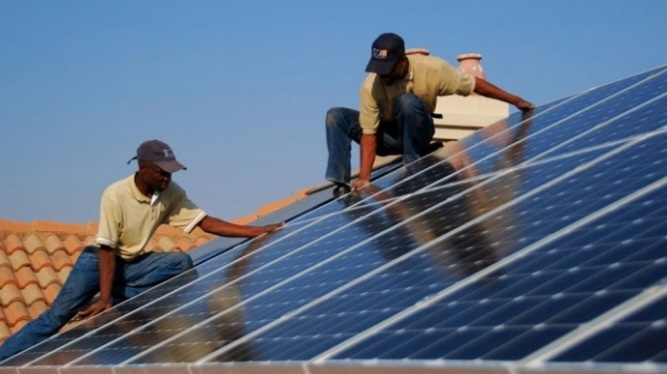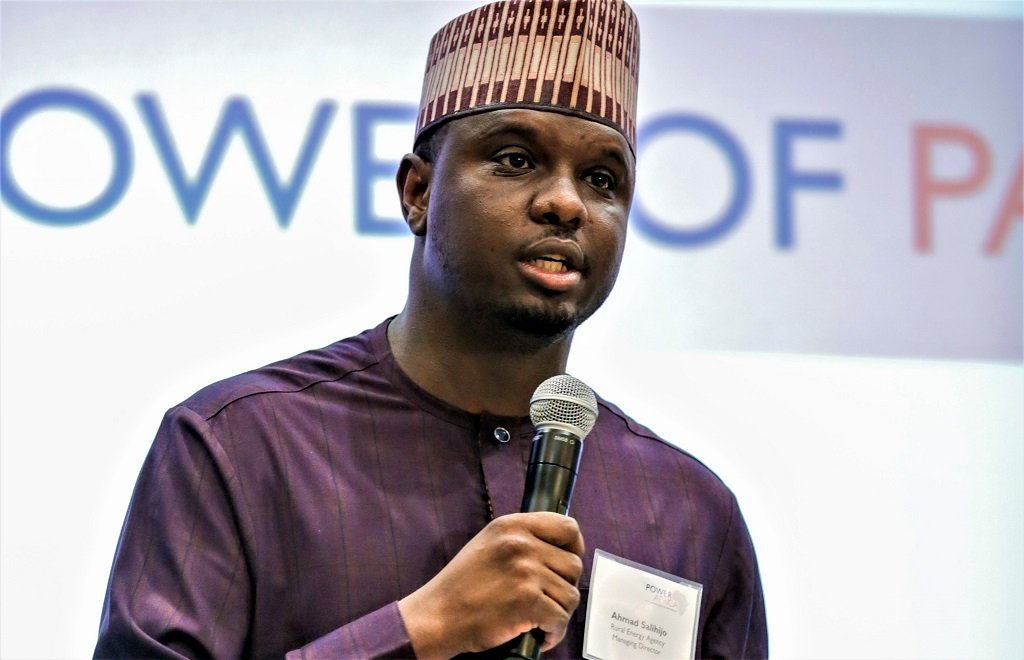REA unveils FG plans to provide solar alternative for small businesses

The Managing Director/Chief Executive Officer of the Rural Electrification Agency (REA), Mr. Ahmad Salihijo Ahmad, has shed light on the Federal Government’s efforts to offer Nigerians solar energy alternatives.
The objective is to alleviate the impact of subsidy removal on businesses and households, according to him.
Following an inspection of REA’s Energizing Economies Initiative (EEI) project in Ayegbaju International Market, Osogbo on Friday, Ahmad explained that the Federal Government, through REA, aims to establish solar energy systems as an alternative power source for underserved communities in Nigeria.
The primary goal of the EEI project is to provide Nigerians with clean and sustainable solar energy options, ultimately reducing or eliminating the need for carbon monoxide petrol-powered generators.

During the inspection, Mr. Ahmad expressed his satisfaction with the progress made at the Ayegbaju Market, stating, “We came to see the progress of the work, and we are very happy with what we have seen here today.”
The project has reached approximately 95% completion, with a targeted power generation of 30kWp. The current pilot phase involves testing the solar power electricity on 48 shops, but the plan is to expand the initiative to encompass all the shops in the market.
Mr. Ahmad highlighted the enthusiastic response from market traders towards the solar power project.
He stated, “What we have seen is the tremendous interest of the market people in the solar energy alternative, especially using it to replace petrol generators, in the face of subsidy removal.”
Recognizing this interest, he expressed his intention to collaborate with developers, the Osun State Government, and the market association to devise a sustainable roadmap for the project’s expansion throughout the entire market.
Through the EEI project, REA aims to demonstrate the feasibility of solar power generation and supply, with the intention of scaling it up to meet the demands of unserved and underserved Nigerians. Mr. Ahmad mentioned that over 148 sites have already been audited directly by REA.
Additionally, support from partners such as E-guide and the Rockefeller Foundation will enhance the EEI project’s implementation.
By considering the lessons learned from previous phases of the project, REA plans to establish a sustainable model for collaborative initiatives with state governments and Electricity Distribution Companies (DisCos).
Once the construction of the solar systems is completed, stakeholders including state governments, DisCos, developers, and REA will engage in multilateral agreements with market associations.
These agreements will ensure the long-term viability of the project while guaranteeing energy access for the markets. Ultimately, the EEI projects will alleviate the burden on businesses by reducing their reliance on petrol generators and promoting the adoption of renewable energy sources.
